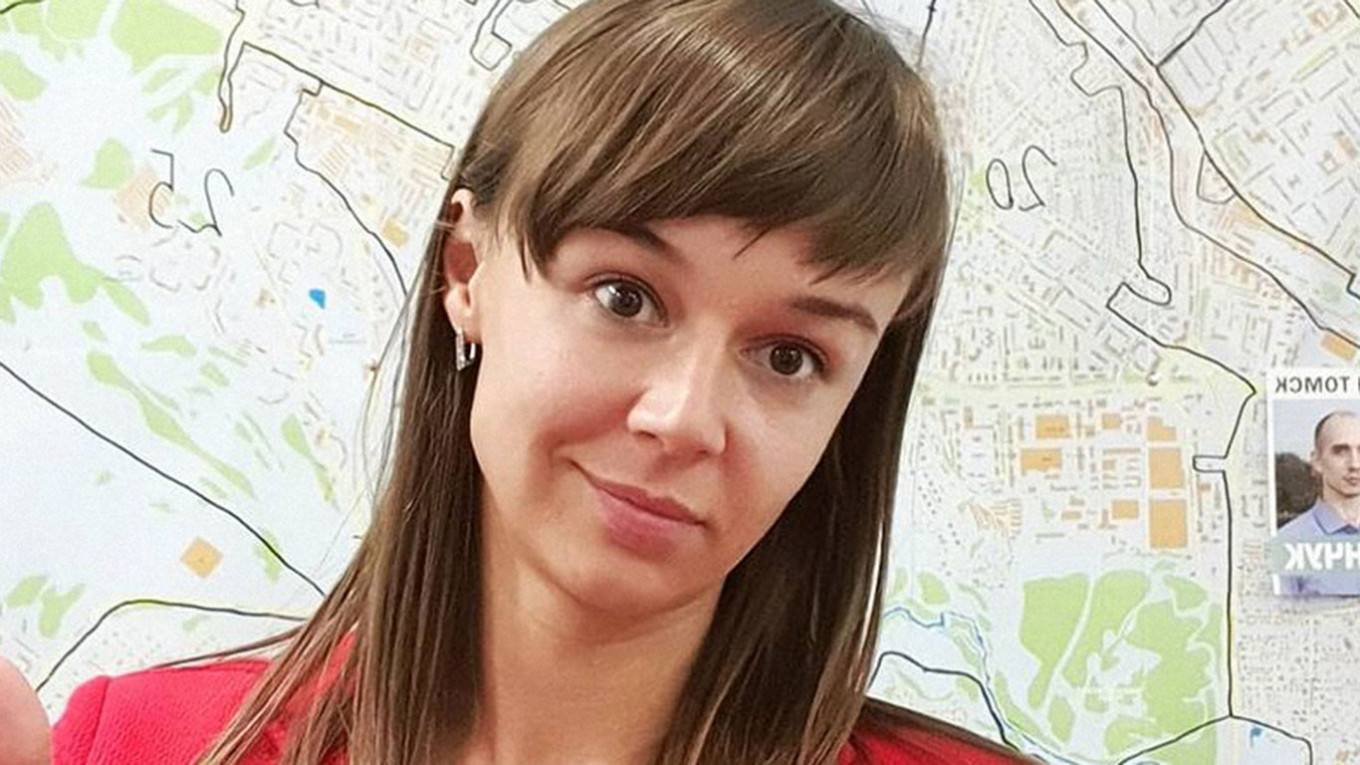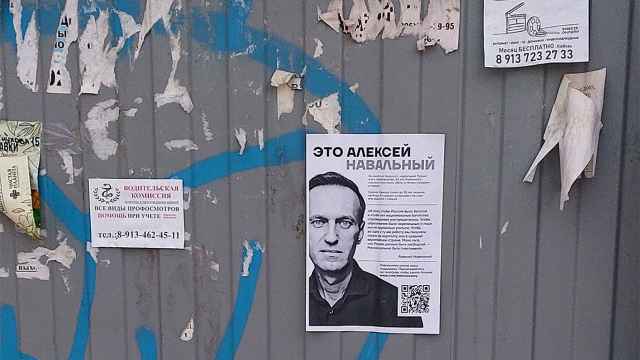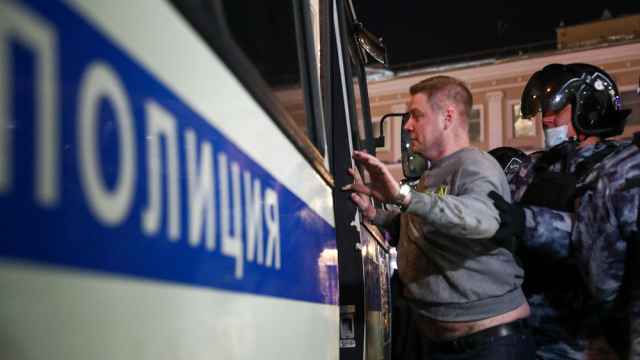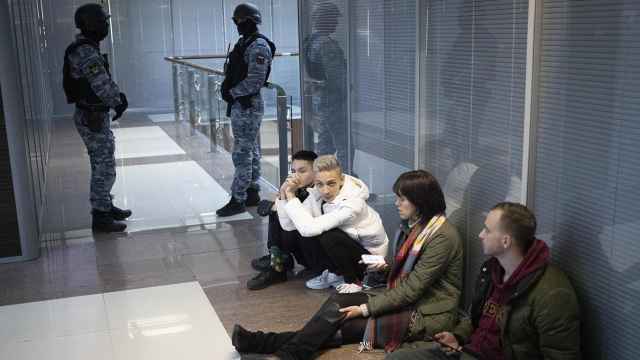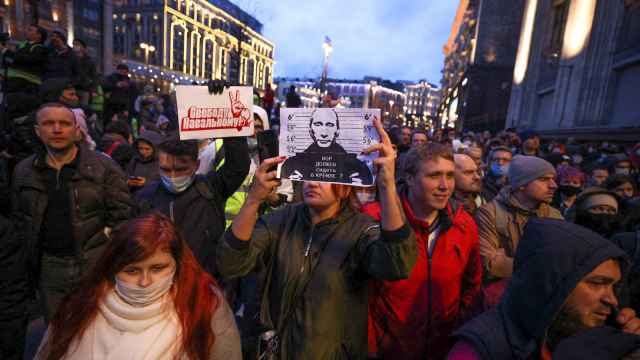A former aide to jailed Kremlin critic Alexei Navalny criticized Russian authorities’ use of extremism law to suppress peaceful political opposition as she appealed her pre-trial restrictions in a Siberian court Monday.
Ksenia Fadeyeva, who was elected to the Tomsk city council in 2020, faces up to 12 years in prison on charges of “organizing an extremist group” for her work as Navalny’s Tomsk regional coordinator. Russia banned Navalny’s groups as “extremist” in June 2021, and several of his former coordinators have been arrested on retroactive charges.
Speaking at her appeal in the Tomsk regional court, Fadeyeva said actions like the “extremism” designation on Navalny’s organizations threaten the very foundations of the Russian state.
“By including oppositionists in the lists of ‘extremists and terrorists’ and initiating cases against peaceful people who only stood up for the observance of the law, the authorities are breaking the foundations of the state. When criminals who blow up planes are equated to politicians who oppose corruption, the fight against real terrorism and extremism is simply discredited,” Fadeyeva said, according to a transcript of her speech published on social media.
She went on to call her case “politically motivated,” saying that she had carried out “absolutely legal political activity” as a member of Navalny’s regional network before it was outlawed.
She told the court that the restrictive measures placed on her ahead of her trial — including a ban on using the internet except to speak with her lawyers — prevent her from doing her job as an elected official and asked for them to be overturned.
“To date, no criminal verdict has been passed against me and I have not formally been deprived of the status of a deputy. However … in connection with my measure of restraint, I cannot meet with voters or solve their problems; I cannot go to council meetings. They punished not just me, but also my voters who elected me to the Duma,” she said.
Judge Andrei Sotnikov rejected Fadeyeva’s appeal.
Navalny had been visiting Tomsk in August 2020 to promote his "Smart Voting" campaign in the election that saw Fadeyva win her seat when he fell severely ill with what Western experts determined was Novichok, a military-grade nerve agent.
He was jailed in January 2021 upon returning to Russia from recovering from the poisoning abroad.
A Message from The Moscow Times:
Dear readers,
We are facing unprecedented challenges. Russia's Prosecutor General's Office has designated The Moscow Times as an "undesirable" organization, criminalizing our work and putting our staff at risk of prosecution. This follows our earlier unjust labeling as a "foreign agent."
These actions are direct attempts to silence independent journalism in Russia. The authorities claim our work "discredits the decisions of the Russian leadership." We see things differently: we strive to provide accurate, unbiased reporting on Russia.
We, the journalists of The Moscow Times, refuse to be silenced. But to continue our work, we need your help.
Your support, no matter how small, makes a world of difference. If you can, please support us monthly starting from just $2. It's quick to set up, and every contribution makes a significant impact.
By supporting The Moscow Times, you're defending open, independent journalism in the face of repression. Thank you for standing with us.
Remind me later.


